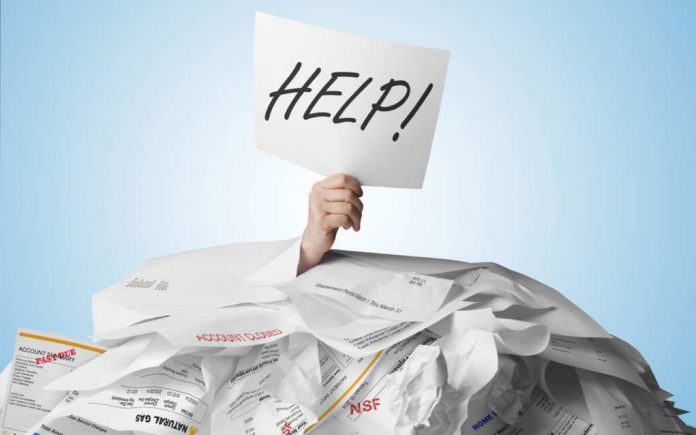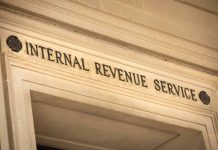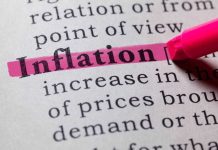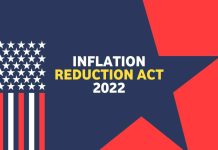
Wondering what to do when drowning in debt? You’ve come to the right place. Today, we’re going to help calm your anxiety and provide you with actionable next steps to reverse the trend and get you back on track to meeting your financial goals. Trust us when we say “I’m drowning in debt – what can I do?” is one of the most common questions we get.
When people first hear the term “drowning in debt”, they may think that phrase could never apply to them. However, many are in for a rude awakening when unexpected expenses like credit card debt, student loans, medical bills, and more begin adding up. These expenses can hit your finances swiftly and cause you to be stuck in a cycle of debt that is too overwhelming. As you’re stressing over debt, late payments can arise and make your credit score decrease. You impact your life in a variety of ways when your credit score decreases. This vicious cycle can be tough to overcome – but we’re here to help.
It can be scary and stressful dealing with these cycles of debt. In fact, 80% of Americans reportedly deal with debt. However, handling your debt may be more manageable than you realize. Let’s take a look at what you need to know to become debt free once and for all.
What Does Drowning in Debt mean?
The phrase, “drowning in debt” is an expression used to describe the overwhelming feeling that debt causes. When you are drowning in debt, you may feel stress-related symptoms like a tightness in your chest, feeling overwhelmed, etc. That panicked feeling is compared to the feeling of drowning in a body of water. However, the term drowning in debt refers to that feeling of debt specifically.
I’m Drowning in Debt – What Should I Do?
I’m drowning in debt – what should I do? If you find yourself asking this question, first know that you’re not alone. This is a situation anyone can find themselves in very easily. There are many forms of debt that can affect you. Some of the most common types of debt include credit card debt, medical bills, student loans, car payments, mortgages, and personal loans. However, there are many different kinds of debt. Managing your debt may feel impossible. However, there are some tips you can follow that can lead you to a better financial standing.
So, How Do I Get Out of Debt?
You aren’t alone in your debt struggles. Many other Americans are looking for ways to overcome their debts. The most important part of debt management is understanding just how bad your current debt situation is.
Compile a List of All Your Debts
The first place you want to start when it comes to managing your debt is organization. When you make a list of all of your debts, you can get an idea of what you’re working with. From prices as low as your monthly music subscription to as high as your total car loan amount, you want to list all of them. This information is easy to obtain. You can find tools through your lender or even access the information online for free. You can get a free copy of your credit report from AnnualCreditReport.com. You want to make sure you know the amount that’s owed, the interest rate on the amount, and the payment made every month.
Create a Budget
When you create a budget, you need to be honest with yourself. You have both fixed expenses and variable expenses. A lot of the fixed expenses are seen with bills like insurance premiums, housing costs, etc. Variable expenses are not as important as memberships, subscriptions, dining out, etc. You need to be realistic about which expenses fall under what category. You may need to sacrifice some of your variable expenses in order to make more progress on your debt.
Budget plans should be personalized to your finances. However, there are common budgeting practices that people follow. One of the more common budgeting methods is the 50-30-20 model. This model structures 50% of your money to go towards fixed expenses like bills, 30% will go towards variable expenses, and 20% will go towards savings. However, you may find that you can cut your personal expenses and attribute your money in different ways. You need to find what works for you.
The goal of your savings should be to support between three and six months of income. This will allow you to have a substantial emergency fund available in case of unexpected expenses. However, even when you reach these goals you should continue to save.
Cut Extra Spending
Many people who are struggling with debt or wondering why they’re broke have a toxic trait of spending too much every month. When dealing with your variable expenses, you can still make smart decisions. If you have a variable expense to go out to a sports bar to watch the game, find an alternative. You can enjoy some food at home while watching the game in your living room. Smart decisions like this can provide you the opportunity to save more while still enjoying some variable expenses.
You also want to make sure you are sticking to the changes you make. It can be easy to cut expenses for a month. Maybe even two months. However, discipline is key when it comes to managing your debt. That is why you will want to make sure you’re not only making the right decisions but following them all the way.
Lower Your Interest Rates
Interest rates are one of the ultimate money-makers for banks. However, these rates can leave borrowers feeling especially stressed. Luckily, it is possible to lower your interest rate. You can deal with reducing your interest rate in two ways.
The first way would be to refinance your rate with the lender. You can apply for another loan at the same lender so that they can refinance your loan at a lower rate. This option should be considered roughly every six months at the soonest. You want to be wary of this option because you will need to run a hard inquiry on your credit report. If you have too many hard inquiries you can negatively affect your credit score. Luckily, these dings to your credit typically fall off after two years.
The second way would be to use a third party for help. You can seek the help of a nonprofit credit counseling agency. They can help you handle your debt through a debt management plan. You won’t have to worry about drowning in debt because professionals will be there to support you.
What To Do When Drowning In Debt With No Money?
If you do not have a lot of money then you may feel like too much debt will be impossible to overcome. Fortunately, that doesn’t need to be the case. When using the proper strategies, you can still work on managing your debt regardless of your situation. However, the first part of getting out of debt with no money means being cognizant of your spending patterns.
Stop Making More Debt for Yourself
You need to check yourself before you begin worrying about paying off debt. If you are continuously creating more debt for yourself, it won’t matter that you make payments. For example, if you are racking up credit card debt then you will want to stop using your credit cards. You can physically remove the opportunity for you to use your card, or you can set transaction limits on the account. Whatever it takes, cut unnecessary spending so you can start to consolidate debt.
Increase Your Income
Cutting unnecessary spending is one way to make your way though debt repayment. Another option? Make some extra money! Making credit card payments or making headway on a deby repayment plan is much easier if you have more income every few weeks.
If your debt situation is too dire, you may need to consider some of the less attractive alternatives. You may want to consider trying to find ways to increase your income. That may mean finding another job or even selling personal belongings. You need to be honest about what your schedule can handle. If you find that you may not be able to work in a physical location, you can try to find flexible options like work-from-home opportunities to help you with your debt payments. You can even learn how to make extra money on the weekends in our blog.
What To Do When Drowning In Debt With Bad Credit?
Having bad credit on top of low income can spell disaster for debt management. You can disqualify yourself for debt relief programs, and spend thousands of dollars in interest rates. However, it doesn’t have to.
Getting a Loan
There are a variety of loan options available to people with bad credit. It is important to note that people with bad credit scores will likely have a higher interest rate on their loans. The first place you will want to start is your bank or financial institution. Here you can see if they offer a consolidation loan that you would be preapproved for. This preapproval is just a soft inquiry on your credit and will not negatively impact your score. If you find that your bank doesn’t have any loan options available then you may want to consider a credit union. Credit unions can be laxer on their loan requirements to due to their nonprofit status.
Avoid Payday Loans and Other Bad Deals
You could find people that want to take advantage of you when searching for debt solutions. You could come across people advertising “easy” methods to get rid of debt. If something is too good to be true, it probably is. Sketchy promotional deals, high-interest rates, and hidden fees can plague these agreements.
The best way to handle these types of deals is to make sure you read the fine print. Any agreement offered to you should have all details about the loan stated. Make sure to ask questions as well. Companies that are not cooperative with your questions should be marked as suspicious and avoided.
Final Thoughts On What To Do When Drowning In Debt
You don’t need to feel like you are drowning in your debt. There are ways you can manage your finances in order to best tackle your current situation. You have options to become debt free – whether you’re suffering from student loan debt, high-interest debt from an auto loan, or even a mortgage.
If you still feel overwhelmed when trying to handle your debt on your own, then seek the help of a professional. They will be able to provide you with the debt management guidance you need when times are tough. You can take their knowledge and continue to apply it to your finances. In no time, you will have regained control of your debt.
Take your time, continue to make the minimum payments to chisel away from your credit card balance or car loans, and continue making educated decisions on your journey to becoming debt-free. It won’t happen overnight, but you can make serious changes to your lifestyle and the way you spend money – eventually, you will be on the right track.




























